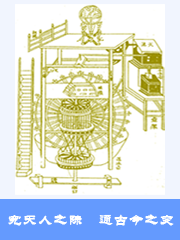- Studies in the History of Natural Science
- The Chinese Journal for the History of Science and Technology
- Science and Culture Review

- The Chinese Journal for the History of Science and technology NO.3 2004
The Chinese Journal for the History of Science and technology NO.3 2004
|
钱三强和早期中国原子能科学 |
葛能全; |
189-198 |
Prof. Qian Sanqiang (Tsien San-Tsiang) and the Early Efforts in the Development of Atomic Energy Science in China……GE Neng-quan
【Abstract】 In the summer of 1946, the Kuomintang government brought forward a plan on setting up a national defense institute to develop atomic weapon and training related personnel. But this plan was run aground very soon due to obstruction of US. In 1947, Prof Hu Shi, then the president of Peking University, wrote a letter to Bai Chongxi, the Minister of the Department of Defense, and Chen Cheng, the Chief of General Staff of the Kuomindang government, in which he suggested that the government should appropriate funds for building an atomic physics research center and invite experts like Prof. Qian Sanqiang to be engaged in the study of related fields. This effort failed again. In 1948, Tsinghua University planned and prepared to develop atomic energy science. Prof. Qian suggested that a nuclear research center should be set up jointly by Tsinghua University, Peking University and Beiping Research Institute. But this plan was also aborted because of the intervention of American Embassy in China. In March 1949, prior to the founding of the People's Republic, the Central Committee of the Communist Party of China approved Prof. Qian Sanqiang's request for foreign exchange which was to be used for the purchase of instruments, devices and books for atomic energy research. This action "demonstrated the foresight and sagacity (of the Communist Party of China), showed (its) determination to administer state affairs well and ensure national stability, which brought hope to the people.
|
李约瑟赴华工作身份 |
段异兵 |
14-23 |
On the Title of Joseph Needham in Wartime China……DUAN Yi-bing
【Abstract】 In 1942,Joseph Needham was selected to go to China on a cultural mission by the British Council,supported by the Foreign Office and the Ministry of Information.Based mainly on the confidential archives kept in the National Archives at Kew Garden,London,this paper reconstructs the history of Needham's selection and discusses the relation between Needham and the Royal Society.It concludes that Needham's heroic achievements in wartime China were made with the title of a British expert selected and directed by the British Council,not as a Counsellor for Science in British Embassy or a representative of the Royal Society.
|
近代化学史上值得纪念的学者——虞和钦 |
谢振声 |
24-30 |
A Memorable Scholar in the History of Modern Chemistry in China:Yu Heqin……XIE Zhen-sheng
【Abstract】 Mr. Yu Heqin (1879-1944) is one of the memorable scholars in the history of modern Chinese chemistry. He was the earliest one to introduce to domestic readers the periodic law of chemical elements,as well as the first person to work out systematic terms for organic compounds. Since he is mentioned in a scattered manner without forming a whole picture in the history of science and technology,the author puts into writing based on Yu's works and related material in order to brief him as an early propagator of modern science.
|
民国时期的中国矿冶工程学会 |
张尔平 |
31-42 |
The Early History of the Chinese Institute of Mining and Metallurical Engineering……ZHANG Er-ping
【Abstract】 Born in 1927,the Chinese Institute of Mining and Metallurgical Engineering (CIMME) is one of the few early academic organizations in China.The origin,organizational setup,publications and key figures of CIMME and its contributions are discussed in this paper. The author hopes that such a discussion will be helpful for further study on the history of mining and metallurgical sciences in China.
|
中国科学院1949—1950年全国科学专家调查综合报告 |
43-64 |
无
|
《汉简历谱》补释 |
邢钢,石云里 |
65-76 |
A Few Supplementary Decipherments of the Fragmented Almanacs Collected in the Hanjian Lipu……XING Gang,SUI Yun-Li
【Abstract】 With the aid of a program which brings out the functions of the Santongli (Triad-Epoch System of Calendrical Astronomy),this paper analyzes the fragmentary almancs collected in the Hanjian Lipu (Fragmentary Almanacs on the Bamboo Clips from the Han Dynasty) in the Tianwen Juan of Zhongguo Kexue Jishu Dianji Tonghui (A General Compilation of Chinese Classics and Technology,Volume on Astronomy).On the basis of the works by previous scholars,the authors attempt to give chronological decipherments for some of the almanac fragments,of which the exact dates have not been determined yet or still remain controversial. In addition,they also point out some other flaws of the Hanjian Lipu,including a number of critical typographical errors.
|
卫新成教授谈“文革”中胰岛素晶体结构的测定工作 |
熊卫民 |
77-93 |
A Retrospect of Determining the Structure of Insulin:An Interview with Prof.Wei Xincheng……XIONG Wei-min
【Abstract】 As the record of an interview with Prof. Wei Xincheng about determining the structure of insulin, this article unfolds the process of a certain research during the Cultural Revolution,which started on the eve of the revolution and was forced to cease working because of its outbreak.Then,as some leading members of the central authorities praised the synthesis of insulin,the research was relaunched.But the waves of the Cultural Revolution were too high,and soon the work was turned down.The attitude of the central authorities revived the work once again.Shortly afterwards,the success announced by foreign rivals almost made Chinese research group concerned about to be dismissed. Because of the order of CAS leaders and the perseverance of some scientists,the research was reserved and achieved some remarkable results in the end.



